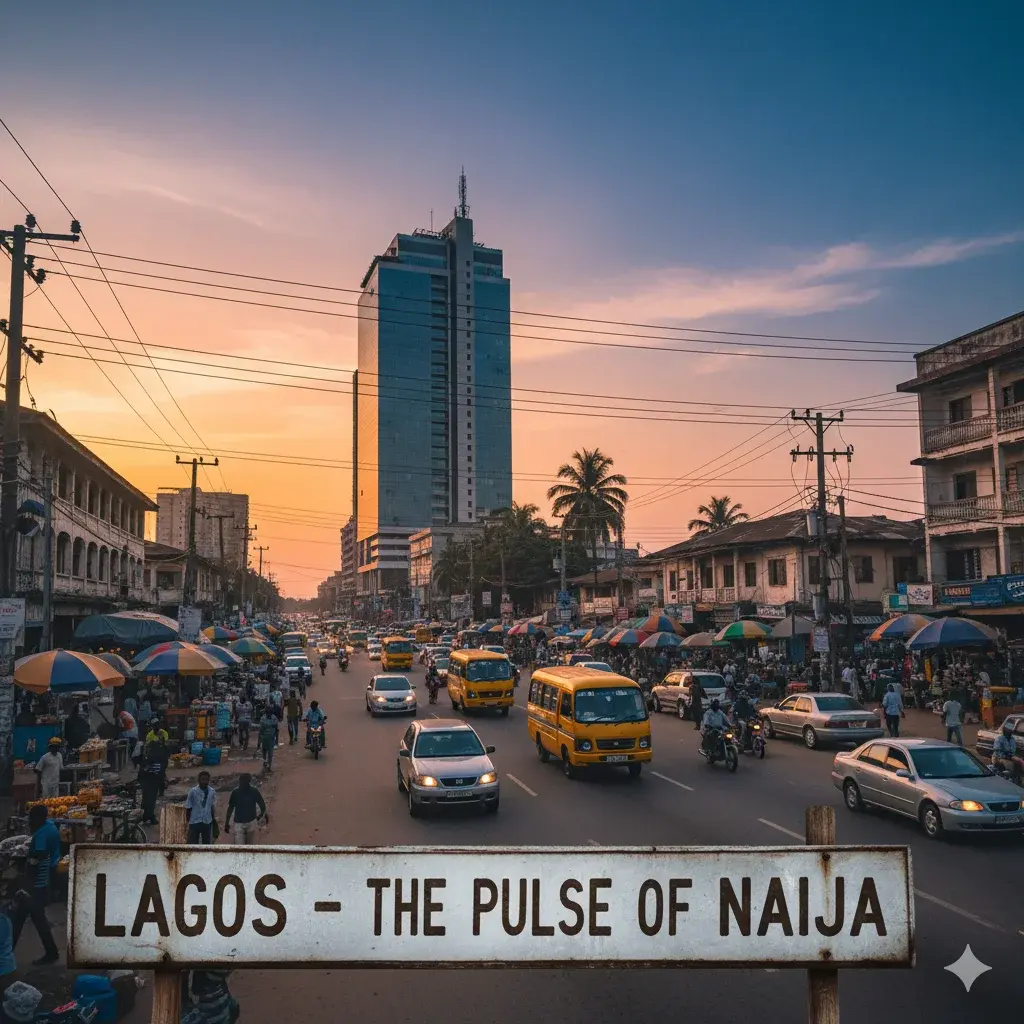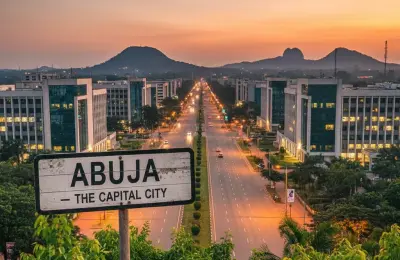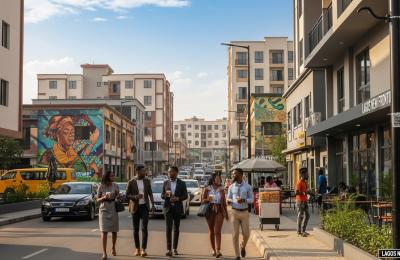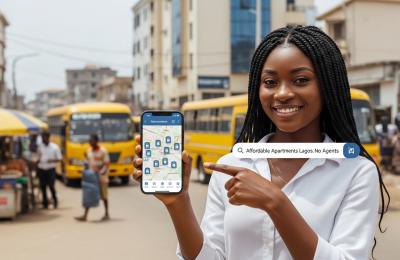Discover Your Dream Home with Our Latest Listings and Personalized Services!
Explore Our Exciting New Property Listings Now Available in Prime Locations!
Take Advantage of Limited-Time Offers on Luxury Homes with Stunning Features!
Join Us for Exclusive Open House Events This Weekend and Find Your Perfect Home!
What is Living in Lagos Really Like
Living in Lagos: What It’s Really Like (A Local’s Honest Guide)
By someone who’s lived here for over 20 years.
If you’ve never lived in Lagos, you might imagine it as chaos wrapped in opportunity, and honestly, that’s not far off.
After living here for over two decades, I can tell you: Lagos will test you, teach you, and reward you, often in the same hour, let alone the same day.
It’s a city of constant movement , from the 5 a.m.danfobus rides where you learn the true meaning of personal space, to the endless, beautiful frustration on the Third Mainland Bridge, to the late-night laughter in roadsidebukasand bustling bars. This city runs on adrenaline and grit.
People flock to Lagos for dreams, jobs, education, and connection, but staying here and building a life takes resilience, finely tuned street sense, a robust network, and, most importantly, a solid, dark sense of humor.
Let’s talk about what living in Lagos really feels like, not the sanitized brochure version, but the honest, pulsating reality.
How Is Life in Lagos, Nigeria?
Life in Lagos is fast, vibrant, and utterly unforgiving.
It’s a city that rewards hustle, everyone is doing something, selling something, or building something. From the hawker dodging traffic to the tech CEO securing Series A funding, the energy is palpable; you can literally feel thehustlein the air. This electric pace is Lagos's primary fuel and its greatest draw.
But let’s be real, it's also incredibly stressful. The famous traffic jams (orgo-slows), the ever-climbing rent, the constant generator noise masking the power cuts, these are not occasional inconveniences; they are a baked-in part of daily life. The cost of fuel for your car or your generator has become a whole separate line item in your monthly budget.
Yet, despite all that, Lagosians remain some of the most resourceful, optimistic, and welcoming people you’ll ever meet. You learn quickly that here, nothing is given, everything is earned. But if you keep your head up, you’ll find community, opportunity, and even joy in the chaos. The sense of achievement when you make it home from the Island to the Mainland in under an hour? That’s pure Lagosian joy.
How Much Do You Need to Live Comfortably in Lagos?
This is the billion-naira question, and the only true answer is: it dependsentirelyon where you are. The Mainland is a different country from the Island. The recent inflationary pressures have pushed these numbers up significantly, especially rent.
Here’s a rough breakdown for a single working professional on the Mainland (2025 average estimates):
Expense | Monthly Cost (₦) | Notes |
Rent (1-bedroom/Mini-flat Yearly) | ₦100,000–₦250,000+ | Calculated Monthly. Areas like Ikorodu, Alapere, Yaba, Gbagada. Rent is paid annually. |
Feeding (Cooking Mostly) | ₦120,000–₦200,000 | Due to high food inflation. Cooking is significantly cheaper than eating out. |
Transport | ₦40,000–₦100,000 | Less if you use public transport (danfo, BRT), high if you rely on ride-hailing (Bolt/Uber) or drive often. |
Utilities & Internet | ₦40,000–₦70,000 | Power (NEPA + Generator fuel), Water, and Data/Broadband. |
Miscellaneous | ₦30,000–₦70,000 | Clothing, entertainment, debt, etc. |
Total (Average Comfortable Living): | ₦330,000–₦690,000+ per month |
If you earn around ₦600,000–₦800,000 monthly, you can live quite comfortably, especially on the Mainland. For the same lifestyle on the Island (Lekki, VI), expect those minimum expenses to easily double due to higher service charges and rent.
You May also Like: Up-and-Coming Areas in Lagos Where Rent Is Still Low
What Are the Advantages of Living in Lagos?
- Opportunities Everywhere (The Economic Engine):Whether you’re into Tech (Yaba is Nigeria's Silicon Valley), Media, Real Estate, or International Trade, Lagos is the nation's undisputed economic capital. It offers more high-level job openings, startup funding, and trading opportunitiesthan any other city in Nigeria.
- Networking & Exposure (Your Contacts Are Gold):You’ll meet incredibly ambitious and driven people daily, from top-tier corporate professionals to savvy street entrepreneurs. In Lagos, your network truly is your net worth. The exposure here is world-class.
- Cultural Energy (The City That Never Sleeps):Lagos never sleeps, and the sheer volume of entertainment is unmatched. From high-end concerts in Victoria Island and upscale restaurants to vibrant street parties in Surulere and iconic theatre performances, there is always something happening to keep you engaged.
- Infrastructure & Access (The Best of the Bad):While often frustrating, Lagos still boasts the best healthcare, the most diverse transport options (including the new Blue Rail Line), and the highest concentration of quality private and international schools compared to most other states.
What Are the Challenges of Living in Lagos?
- Traffic (The Great Time Thief):The traffic is legendary for a reason. One wrong turn or a momentary lapse in judgement at rush hour and you're spending two hours on what should be a 15-minute drive. It doesn't just cost fuel; it costs time, which is why Lagosians live by "African Time" but operate on a strict, personal timetable.
- High Rent & Service Charges: Housing costs are astronomical and can easily consume 40-50% of an average salary if you choose a mid-tier location. On the Island, the mandatory annual service charge for estates (covering security, waste, and sometimes power) can be higher than the rent in some Mainland areas.
- Noise & Crowds: Lagos is relentlessly loud, perpetually crowded, and fast-paced. If you're an introvert or not used to intense city life, the sheer density and constant noise from generators, hawkers, and traffic can be profoundly overwhelming.
- Unreliable Power:Despite some improvements, reliance on private generators is still the norm, especially for long-hour businesses and comfortable homes. This adds significant expense and noise pollution to daily life.
Still, Lagosians have mastered the art of adapting, turning these challenges into routines.
Why Do People Move to Lagos?
Because Lagos offers what other cities don’t, opportunity and visibility.
It's Nigeria's economic and cultural capital; from global banking institutions to groundbreaking tech startups and the entire Nollywood industry, everything big begins here.
People move here for:
- Jobs and Business: The volume and quality of work are unmatched.
- Education and Exposure: Access to top universities (like Unilag, Yabatech) and global business practices.
- Connections and Ambition: The desire to play on a bigger stage.
In simple terms: if you can make it in Lagos, you can truly make it anywhere in the world.
Which Area Is Best to Live in Lagos?
It depends on your priorities and, crucially, where you work. Commuting from Ikorodu to VI is a non-starter for your sanity.
Need | Recommended Area | Description |
Affordability | Ikorodu, Egbeda, Agbado | Budget-friendly & expanding; good for starting out. |
Career Access (Mainland) | Yaba, Surulere, Ikeja | Central, excellent transport links, close to business/tech hubs. |
Luxury & Lifestyle | Lekki Phase 1, Victoria Island, Ikoyi | Expensive, highly developed, top amenities, closer to the sea. |
Family Life & Safety (Mainland) | Gbagada, Magodo GRA, Ogudu | Quiet, secure, well-managed gated communities, good schools. |
For most working professionalswho value a decent balance between convenience, safety, and cost, Yaba (for the creative/tech crowd) and Gbagada/Magodo (for families/professionals) strike the best balance.
What Is the Cheapest Place to Live in Lagos?
If you’re on a tight budget, the absolute fringe areas and developing suburbs offer the most affordable rent:
- Ikorodu
- Agbado/Oke-Odo
- Mowe–Ofada (Ogun State Axis)
In these neighbourhoods, you can still find a decent mini-flat (one room and a parlour) for ₦400,000–₦600,000per year. They are developing fast, and you can still find decent housing if you don’t mind a significantly longer commute, sometimes up to 2.5 hours at peak time to the Island.
What Is the Nicest Part of Lagos?
The “nicest” depends on what you value.
If you’re after Ultra-Luxury, Security, and Aesthetics, Banana Island and Ikoyi top the list, with manicured streets, waterfront views, diplomatic residents, and top-tier private security.
If you want Modern Comfort, Accessibility, and upper-middle-class living without the extreme price tag, Lekki Phase 1, Gbagada, and Magodo GRA offer a great middle ground.
What Is the Safest Place to Live in Lagos?
Areas are considered safest based on private security investment and community management, not just police presence.
Magodo GRA, Ikeja GRA, Ikoyi, and Lekki Phase 1 are consistently cited as the safest, due to gated access, strong residents' associations, and extensive private security patrols.
What Is Crime Like in Lagos?
Like any megacity of over 20 million people, Lagos has its share of crime. Petty theft (phone snatching, pickpocketing), especially in traffic or crowded markets, is common. Vehicle break-ins and occasional high-profile robberies occur, particularly at night in isolated spots.
However, it is vital to know that most violent crimes are concentrated in specific, known flashpoints. Major crime rates have been generally managed in high-value residential areas.
Smart Lagosians follow basic street rules:
- Avoid using your phone openly in traffic or in crowded public transport.
- Never resist if a criminal attempts to rob you, your life is not worth the phone.
- Always confirm your transport source (Bolt/Uber) before getting in, especially late at night.
- Be hyper-aware of your surroundings when moving cash or valuable items.
Street sense isn't just a suggestion here; it's a critical survival skill.
Is Lagos Rich or Poor?
Lagos is both, a city of sharp contrasts and deep paradoxes.
You’ll find dollar billionaires in Banana Island living 20 minutes away from struggling families in the shantytowns of Makoko. The juxtaposition of glass skyscrapers and vast informal settlements defines the city’s complex economic landscape.
Wealth here isn’t just about money, it’s about access, creativity, and the relentless grit to manoeuvre the city’s challenges. Lagos is a magnet for wealth, but it also creates and sustains a vast population of poor working-class residents.
What Is the Poorest Area in Lagos?
Areas like Ajegunle, Makoko (the floating slum), and certain parts of Mushin still face significant infrastructure deficits and high levels of poverty.
Yet, these communities are also rich in culture, resilience, and entrepreneurship, serving as critical labor reservoirs and hubs for vibrant, street-level commerce. Many highly successful Lagosians started their journey right there.
Where Is the Cheapest Place to Rent a House in Lagos?
For those who need to minimize rent and are willing to travel long distances, the cheapest areas remain:
- Ikorodu (the furthest Mainland extension)
- Agbado/Ijaiye
- Mowe–Ofada (technically Ogun State, but deeply tied to Lagos commerce)
Rent for a basic mini-flat starts at ₦400,000 per year here, but remember: the savings on rent are often spent on the extra time, stress, and transport costs of commuting.
Let’s Wrap Up Here
Lagos isn’t for everyone, and that’s okay. It’s a citywith high-stakes entry and a brutal weeding-out process. But for those of us who stay, it builds something deeper than success. It creates an unparalleled resilience, a sharp drive, and a sense of identity that’s hard to explain until you’ve lived it, loved it, and cursed it a thousand times over.
Whether you’re planning to move to Lagos or you’ve been here all your life, remember:
You don’t just live in Lagos, you grow through it.




